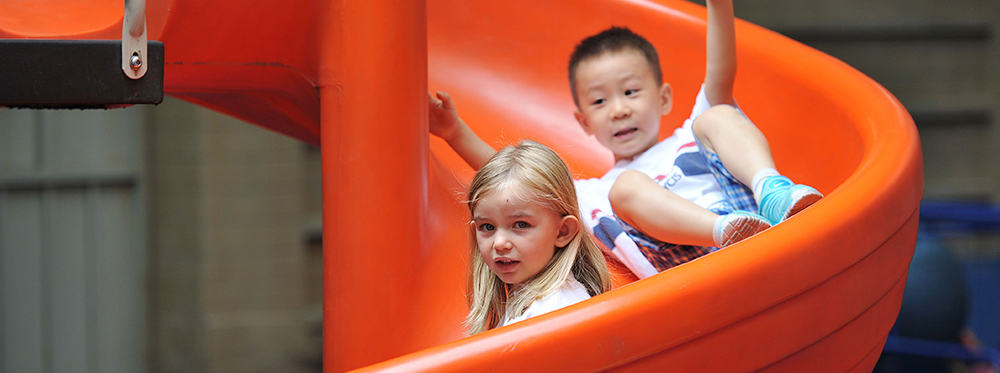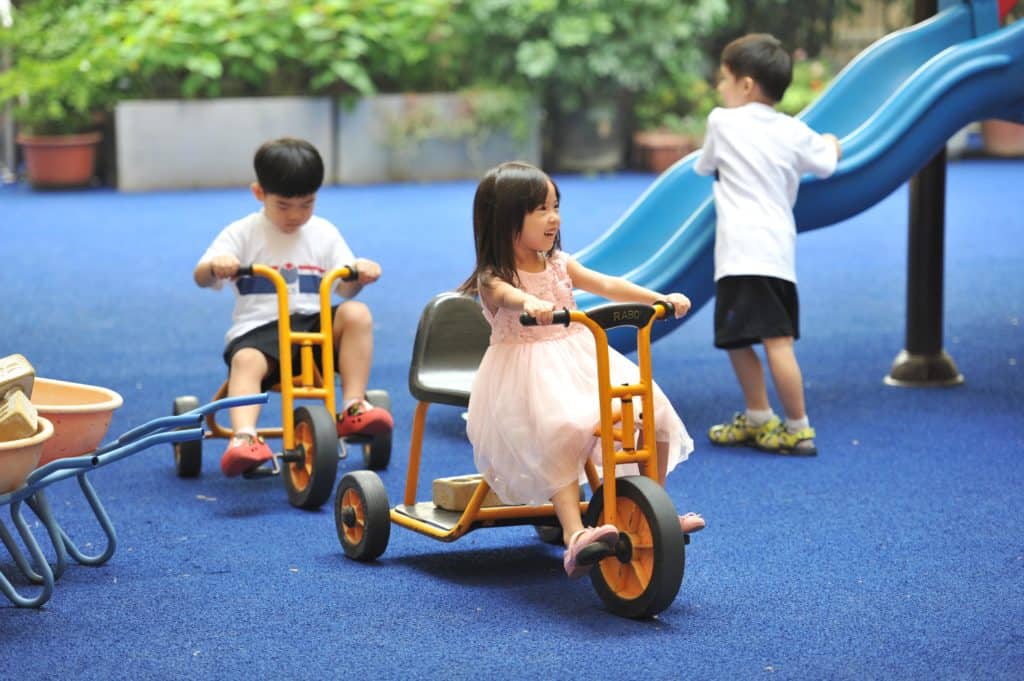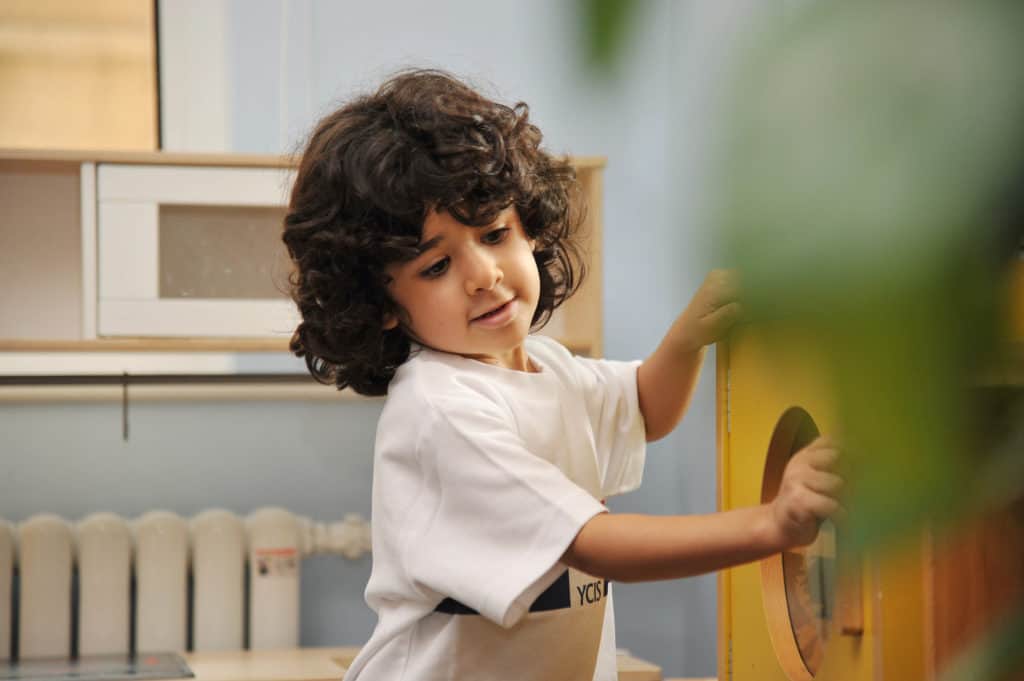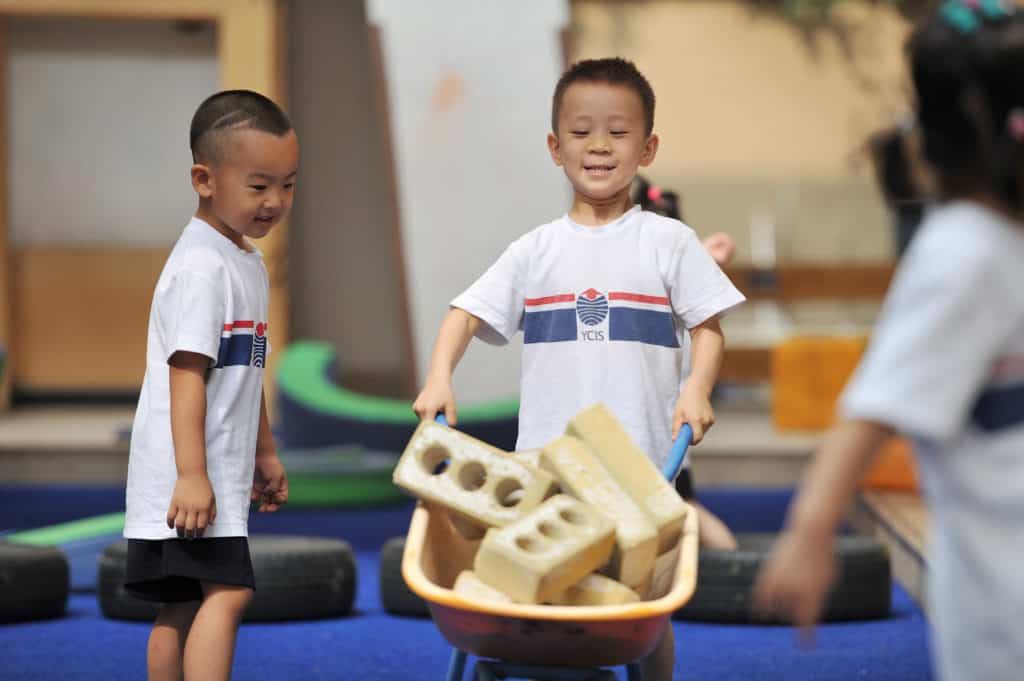Towards the end of the academic year, preparations at Yew Chung International School of Beijing begin for the eldest kindergarten children’s to move to Year 1. Mrs Maryanne Harper, Early Childhood Education (ECE) Coordinator at Yew Chung International School of Beijing, discusses the school’s transition programme for children moving from ECE into Year 1, and offers advice to parents on how to make this process as smooth as possible.
Children face several changes as they move into the Primary School; the purpose of our transition programme is to introduce these changes gradually in the run-up to the new academic year.
The programme begins several months before the children move into Year 1. During this time, we involve the children in as many Year 1 experiences as possible. For example, we take the children to the Primary School playground for playtime and the cafeteria for lunch. They then have a chance to join lessons in Year 1 classrooms – Literacy, Maths, Chinese and Violin – that are taught more formally than in ECE. Gently exposing children to this different style of teaching and learning means that they are more at ease when they begin in Year 1.
We also place emphasis on building relationships between the children and their new teachers. The Year 1 teachers regularly visit the ECE during transition. They discuss the changes with the children, answer questions and help them feel excited about the move.
Our transition programme is very successful and achieves great results in terms of our students’ happiness and, by extension, their ability to learn. But there is a lot that parents can do to make this period of change even more comfortable and positive.
1. Ease back into the school routine
Don’t expect your children to go immediately from a relaxed and flexible holiday routine to a school night routine. Allow at least one week before term begins to return to regular, set mealtimes and bedtimes – with other comforts such as a bedtime story.
2. Make time for sleep
Sleep is very important for little children, especially when they are facing lots of changes and a new environment. When children first move into Year 1, the longer day and more formal teaching style is very tiring – so be strict about early nights.
3. Allow time in the mornings
Allow plenty of time in the mornings to have a relaxed journey to school. Having a frantic morning can be very unsettling for children who are faced with a new environment at school. It’s also nice for both parents and children to have time in the mornings to talk about the day ahead – and have a little fun on the way in!
4. Create a sense of excitement
Do your best to show your excitement about the change. This will be reflected in your child’s own feelings – and when children feel excited, they take readily to new tasks and challenges. An activity such as heading out with your child to buy a new school bag or drink bottle can be a great way to get children feeling positive.
5. A short and sweet goodbye
It’s natural for parents to feel anxious when they drop off their children on their first day in Primary School – but try not to let your own nerves show! Say a loving but quick goodbye and allow them to head into school without too much delay. When children arrive in the classroom with their classmates, they always settle very quickly.
6. Enjoy the summer off
Parents often ask me what their children should be learning over the summer to prepare – but there is no need. The school takes care of introducing the new curriculum, and children will start learning naturally within the school context.
7. Talk to your children
Make sure you discuss your child’s day with them – what they’ve learned, the highlights and things they found hard. It’s good to encourage a dialogue that can continue throughout their time at school, showing them that you are interested in what they’re learning and are there to support them.
Mrs Maryanne Harper has been at Yew Chung International School of Beijing for three years, where she and her team established the open-plan, multi-age group ECE Learning Community. Originally from Australia, her career in Early Childhood Education has spanned three continents and over 35 years.



